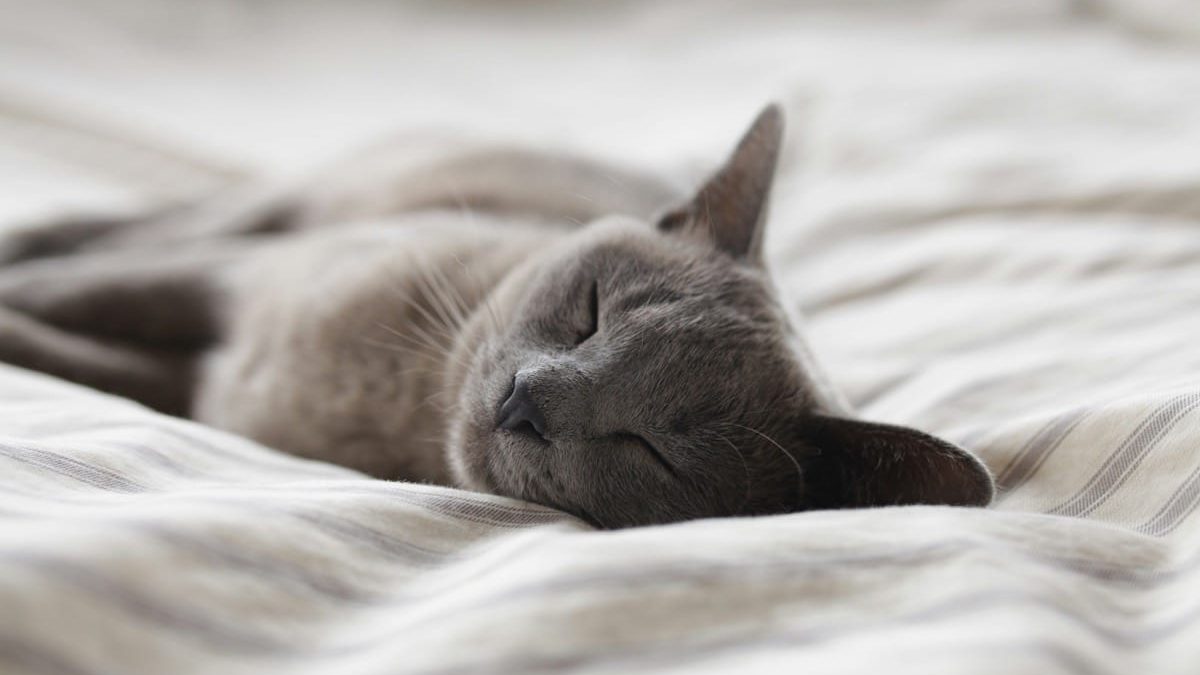
Why My Cat Doesn’t Sleep with Me Anymore
Snuggling with your purring kitty at night is one of life’s great joys. But what happens when your furry friend suddenly switches up their sleeping habits and abandons the cozy cuddles? If you’re wondering why your cat doesn’t sleep with you anymore, you’re not alone. This is a common feline mystery that leaves many cat owners heartbroken and bewildered.
Fear not, fellow cat companions! This blog post delves into the possible reasons behind your cat’s sleeping solo act and offers tips on how to woo them back into your arms (or at least onto your bed).
Reasons for the Snuggle Strike
1. Age and Health:
As cats age, their sleeping patterns change. Senior felines tend to sleep more but for shorter stretches, and they may prefer the comfort of softer surfaces like plush blankets or sunny windowsills. Health issues like arthritis or joint pain can also make cuddling uncomfortable for your cat. If you suspect a health concern, always consult your veterinarian.
2. Environmental Changes:
Did you recently move, adopt a new pet, or introduce a new piece of furniture? Even minor changes in your cat’s environment can disrupt their sleep routine and make them feel insecure. Give your cat time to adjust, provide them with familiar hiding spots, and ensure they have access to their favorite resources like food, water, and litter boxes.
3. Sensory Overload:
Cats are sensitive creatures, and loud noises, bright lights, or strong smells can disrupt their sleep. If you tend to toss and turn at night, snore loudly, or have a boisterous household, your cat may simply be seeking a calmer sleep haven. Consider using earplugs, investing in a white noise machine, or creating a designated cat-only sleep space in a quiet corner.
4. Preference Shift:
Just like humans, cats have individual preferences. Some cats are naturally cuddly and enjoy physical contact, while others are more independent and prefer their own space. Your cat may have simply outgrown their fondness for nighttime cuddles. Remember, their love for you doesn’t depend on their sleeping location.
5. Medical Issues:
In rare cases, an underlying medical condition could be causing your cat’s sleep disruption. If you notice other changes in your cat’s behavior, like decreased appetite, lethargy, or difficulty grooming, consult your veterinarian to rule out any medical problems.
Winning Back Your Cuddle Buddy
1. Make it Inviting:
Create a cozy and inviting sleep space for your cat on your bed. Place a soft blanket or cat bed in a corner or at the foot of the bed, away from drafts and direct sunlight. You can even try adding a heating pad on low (always unplug it before going to sleep) to provide extra warmth.
2. Offer Temptations:
Entice your cat with irresistible temptations like catnip-filled toys, pheromone sprays, or treats associated with bedtime. This can help create positive associations with your bed and encourage them to spend more time there.
3. Keep it Calm and Quiet:
Dim the lights, turn off electronic devices, and avoid loud conversations or activities near your bed before sleep. Creating a peaceful atmosphere can help your cat relax and feel more comfortable snuggling up with you.
4. Respect Their Boundaries:
Never force your cat to cuddle or restrain them if they seem uncomfortable. Pushing it will only damage your bond and make them less likely to seek your company in the future. Be patient, let them come to you on their own terms, and shower them with praise and affection when they do.
5. Alternative Snuggle Sessions:
While nighttime cuddles may be off the table, don’t despair! You can still enjoy bonding time with your cat during the day. Offer gentle ear scratches, brush their fur, or have playtime sessions with their favorite toys. These interactions will strengthen your relationship and provide your cat with the love and attention they crave.



